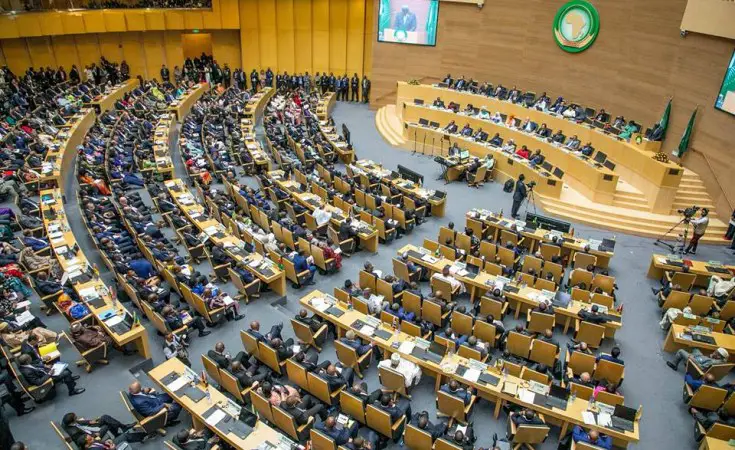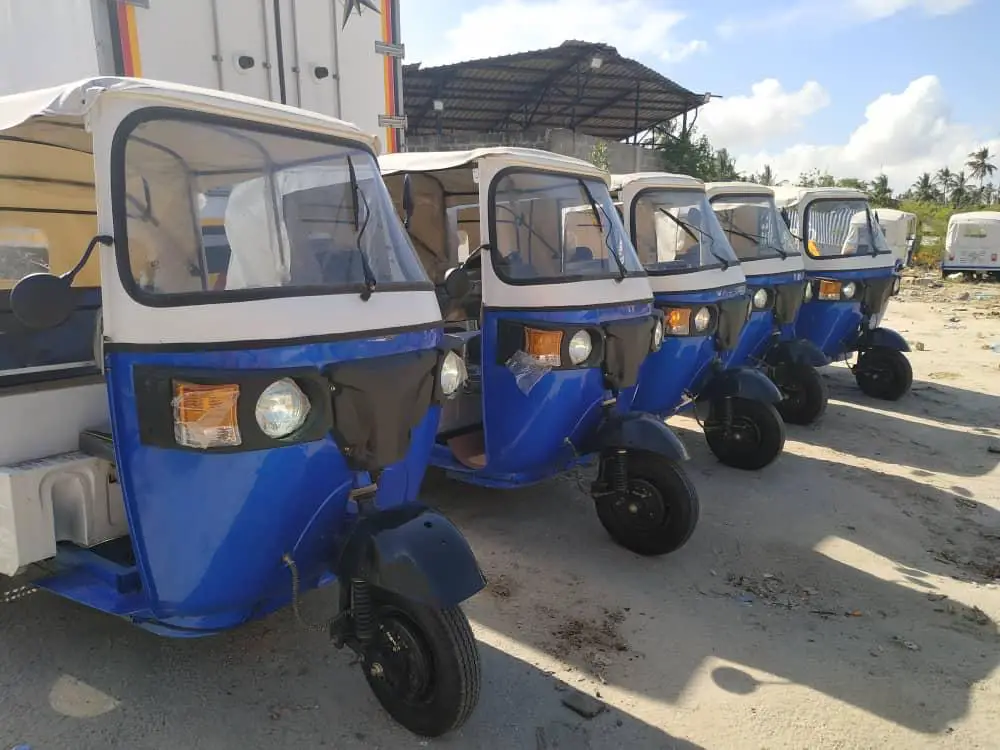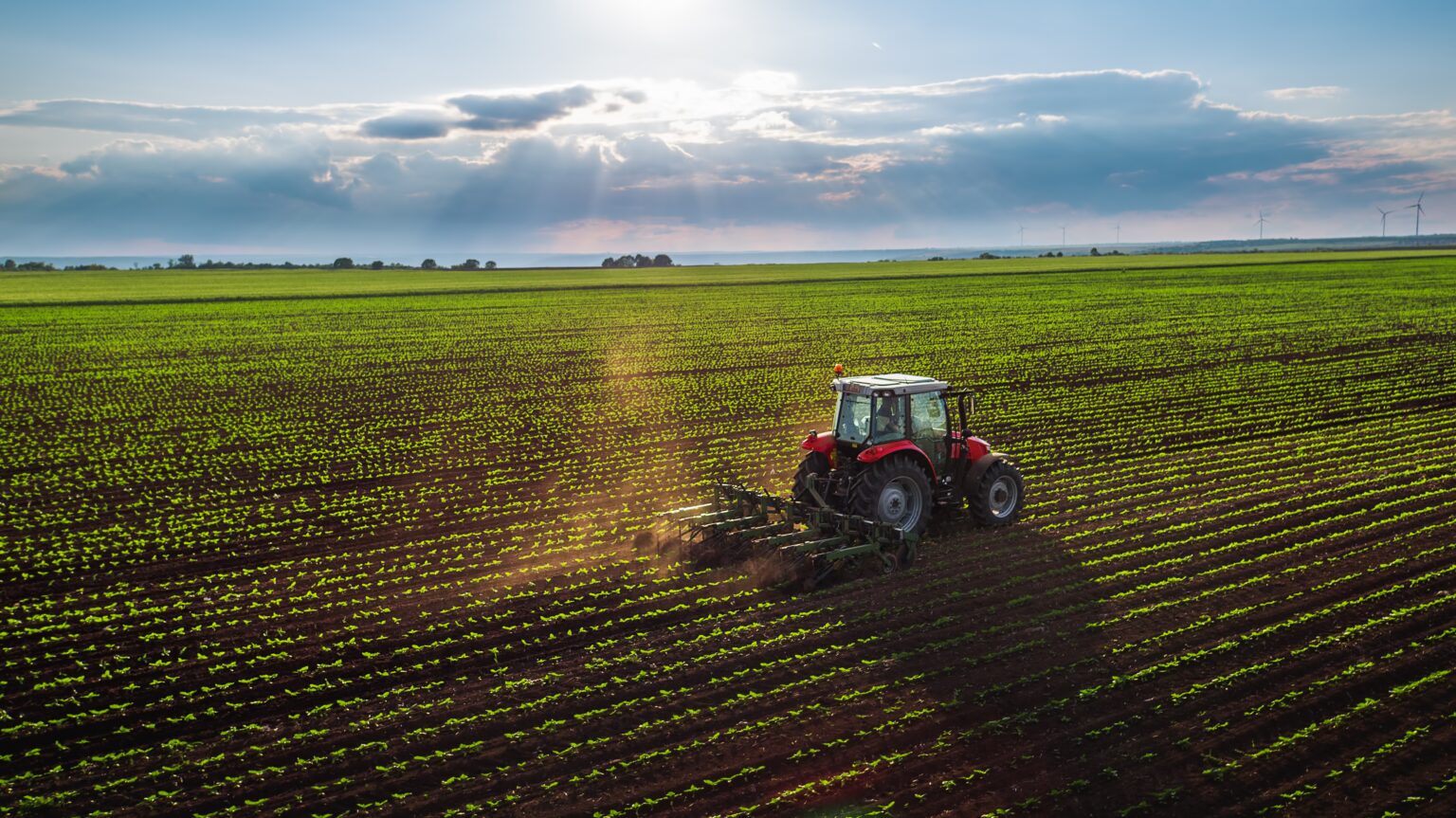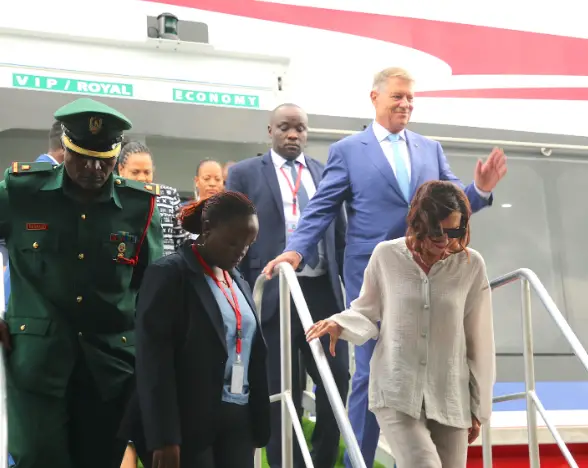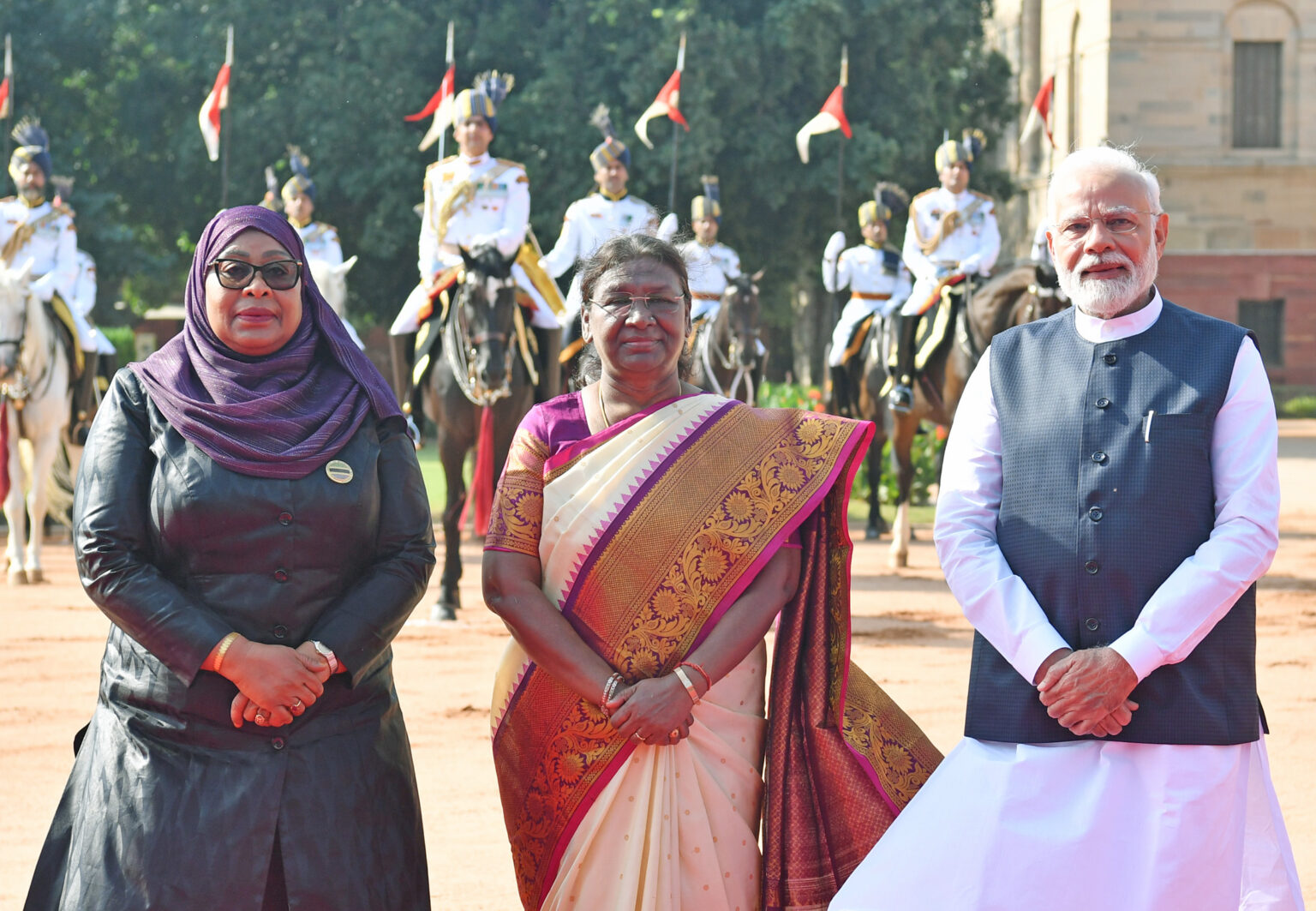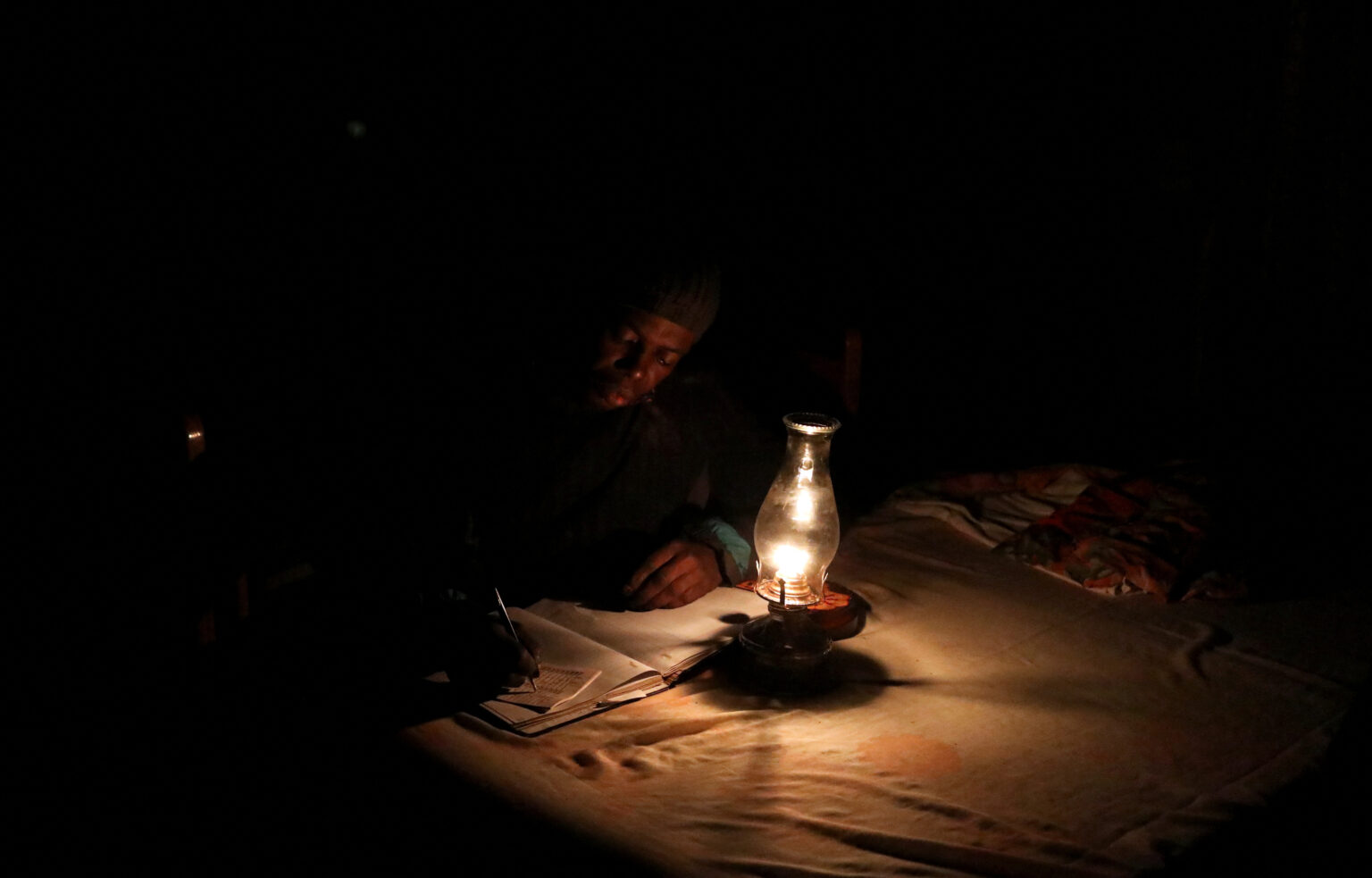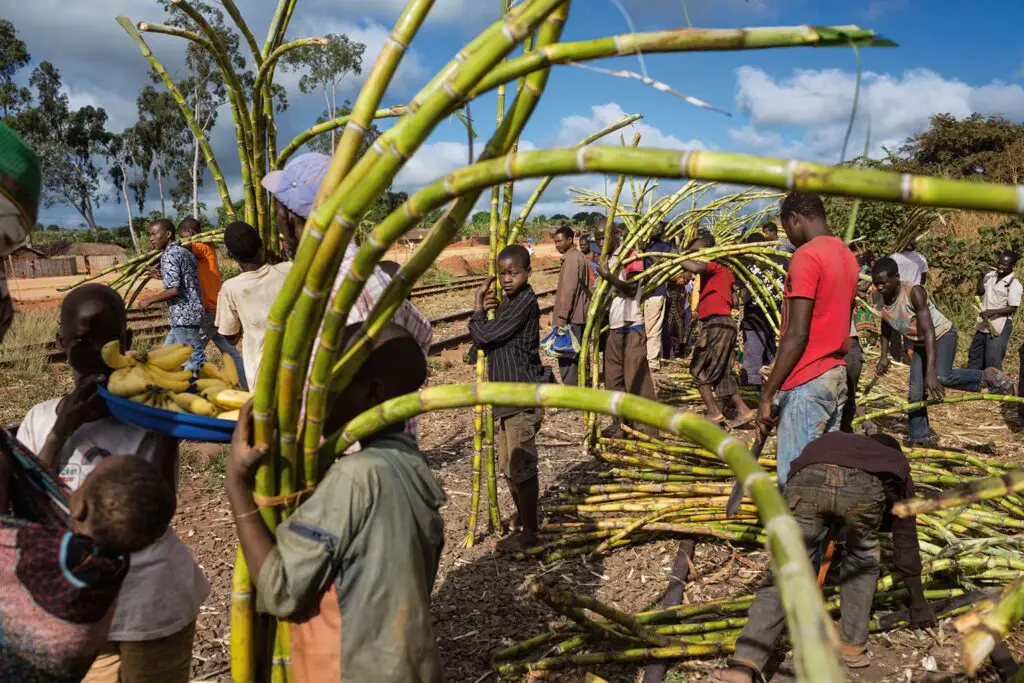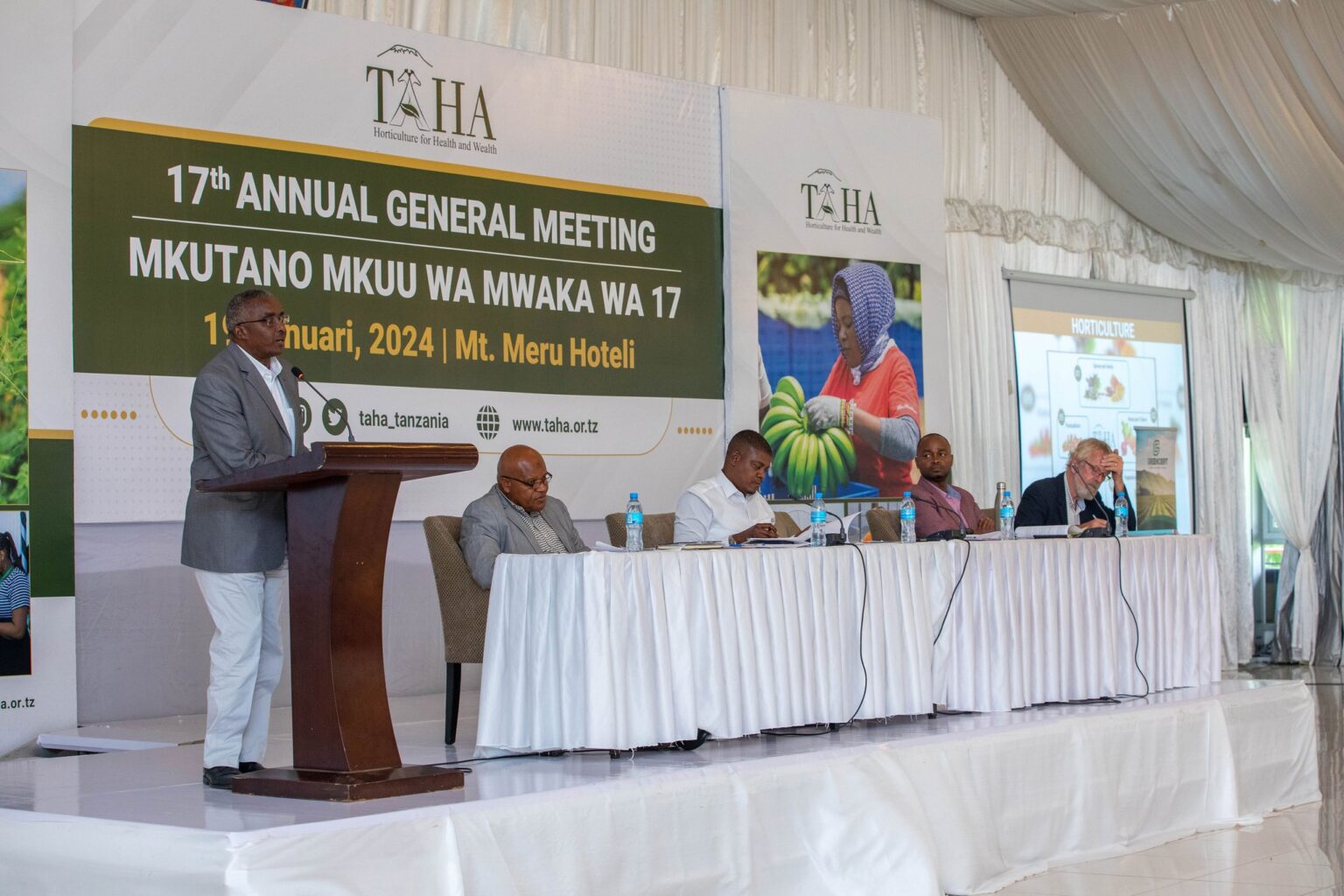- Abu Dhabi radiates optimism as over 300 startups join AIM Congress 2024
- TLcom Capital Raises $154 million in Funding to Boost Its African Growth
- Africa’s $824Bn debt, resource-backed opaque loans slowing growth — AfDB
- LB Investment brings $1.2 trillion portfolio display to AIM Congress spotlight
- AmCham Summit kicks off, setting course for robust future of US-East Africa trade ties
- Why the UN is raising the red flag on the UK-Rwanda asylum treaty
- Portugal’s Galp Energia projects 10 billion barrels in Namibia’s new oil find
- Wärtsilä Energy offers tips on how Africa can navigate energy transition and grid reliability
Author: Giza Mdoe
Giza Mdoe is an experienced journalist with 10 plus years. He's been a Creative Director on various brand awareness campaigns and a former Copy Editor for some of Tanzania's leading newspapers. He's a graduate with a BA in Journalism from the University of San Jose. Contact me at giza.m@mediapix.com
- Artificial Intelligence (AI) plays a crucial role in Africa’s socio-economic and political development.
- Currently, tech giant Google is funding the deployment of AI in Africa.
- Google is exploring how AI can address poverty, hunger, and disease in Sub-Saharan Africa.
The Executive Council of the African Union (AU) has resolved that education systems provide the basis for building a strong foundation for Africa’s future, with the powblack friday wig sale custom sublimated hockey jerseys durex intense vibrations ring custom nfl football jerseys custom nfl football jerseys johnny manziel jersey deuce vaughn jersey brock purdy jersey custom maple leafs jersey custom youth hockey jerseys brock purdy jersey fsu football jersey nike air max 90 futura brock bowers jersey blundstone uomo er of Artificial Intelligence (AI) taking center stage.
The resolution was reached at the 44th Ordinary Session held in Addis Ababa from Valentine’s Day through to February 15, 2024.
This meeting …
- Tanzania-based clean energy company, TRí, is introducing electric tricycles to the country’s transportation sector to reduce carbon emissions.
- On average, the oil-powered motorcycle is estimated to be 10 times more polluting per mile than a passenger car, light truck, or SUV.
- The move to roll out electric motorcycles aligns with Tanzania’s Inclusive Green Economy (IGE) Program, which aims to promote zero emissions by 2030.
The transport industry accounts for a significant amount of carbon emissions in Tanzania and around the world. Through players in the private sector, Tanzania is turning the tide with green transport startup, TRí, launching electrical tricycles in the market.
These tricycles promise cost savings for thousands of riders, especially small-scale traders who dominate the country’s transport industry.
With the rising cost of fuel, electric tricycles are becoming the go-to option for traders who are keen on protecting their margins, with TRí’s market survey showing that their …
- In 2023, Tanzania’s telecommunication sector earned approximately US$2.2 billion.
- The TCRA reports that the telecom sector is growing at a Compound Annual Growth Rate (CAGR) of more than 4 per cent.
- Mobile money subscriptions in Tanzania reached 44.35 million subscribers last year.
Tanzania’s telecommunication sector growth
The total service revenue of Tanzania’s telecom sector reached US$2.2 billion in 2023, and the market is projected to grow at a Compound Annual Growth Rate (CAGR) of more than 4 per cent until 2028, according to global data.
A report titled “Tanzania Telecom Services Market Overview” attributes the sector’s performance to the increasing contributions from mobile data and fixed broadband service segments.
The report also notes that initiatives such as the Digital Tanzania Initiative, aimed at achieving 80 per cent broadband penetration by 2025 in partnership with the World Bank and mobile operators, and the adoption of 5G services will drive the market …
- By 2030, partners of the Southern Agricultural Growth Corridor of Tanzania (SAGCOT) aim to cultivate 350,000 hectares of land for profitable production.
- Using the SAGCOT model, Tanzania aims to achieve self-sufficiency in food production to feed Africa by the same year.
- Agriculture in Tanzania currently contributes nearly 30 percent of the country’s GDP and employs over three-quarters of the nation’s workforce..
The Southern Agricultural Growth Corridor of Tanzania (SAGCOT) has achieved significant success over the last decade since its establishment in 2010. Tasked with promoting inclusive, sustainable, and viable agricultural value chains in southern Tanzania, the organization has notably enhanced agricultural productivity.
SAGCOT has established production clusters, including Ihemi, Mbarali, and Kilombero, in southern and Morogoro. Through these agricultural clusters, SAGCOT has successfully increased food production, developed value chains, and elevated household income for farmers.
“I am truly impressed with the work of the SAGCOT Centre Limited and its …
- The Romania-Tanzania alliance is taking shape with President Iohannis signing two major trade MoUs with the African country.
- This is part of Tanzania President Samia’s move to woo European investors to her country’s agriculture sector.
- Romania-Tanzania ties seem to offer immediate gains with the European country assuring Dar es Salaam of food security even as the Ukraine-Russia war persists.
A fresh alliance, Romania-Tanzania, is taking shape, with the European country betting on the East African nation to grow its presence and influence on the continent significantly as it forges “strategic approaches to Africa.”
President Klaus Iohannis made the assertion during his recent visit to Tanzania. In a four-day state tour, he engaged with the government and investors in Tanzania’s mainland and the island of Zanzibar.
During his visit, at least two Romania-Tanzania agreements were signed by President Iohannis and his counterpart, Dr. Samia Suluhu Hassan.
Romania-Tanzania strategic partnership
While the …
- Tanzania and India have agreed to trade in local currencies weaning off the use of the US dollar.
- There are advantages of using local currencies in trade versus the traditional dollar.
- Tanzania and India have also agreed on military, maritime, and space technology cooperation.
India’s Ministry of Foreign Affairs Secretary Dammu Ravi has met with Tanzania’s President Samia Suluhu Hassan with reports emerging that the two leaders have among other things, agreed to trade in Rupees, the sub continent’s local currency.
The decision implies that the two countries, with long-running business ties, will effectively wean off using the king dollar as their ‘gold standard’, instead embracing the Indian Rupee as their common currency in exchange for value.
“When international transactions are denominated in local currencies, countries can avoid currency fluctuations and the associated risks. This stability helps to mitigate exchange rate volatility, reducing uncertainty and facilitating more accurate planning …
- Analysts observe numerous loopholes in global climate talks, with a failure to address glaring food security concerns.
- Financial commitments for food systems remain low, affecting implementation, and leaving millions of people hungry.
- Agriculture accounts for a quarter of global greenhouse gas emissions.
For the very first time, food systems were finally discussed at the just-ended COP28 in Dubai late last year, but analysts are up in arms, asking if it’s a ‘too little, too late’ scenario.
“Given the profound impact of agricultural practices and food consumption patterns on our planet’s health, this attention is long overdue,” notes the Alliance for Food Sovereignty in Africa (AFSA) in its review of the COP28 outcome.
Better late than never, so “though the talks’ long overdue focus on food and agriculture ultimately disappointed, it provides a starting point for future action and advocacy.”
COP28 was held in Dubai late last year, and while there …
- Climate change is causing droughts, which, in turn, are to blame for the persistent power cuts in Tanzania.
- To address this challenge, Tanzania projects that completing the 2,115MW Julius Nyerere hydropower dam will double the country’s hydro capacity.
- Currently, approximately 95 per cent of Tanzanian households rely on biomass for fuel.
Tanzania power cuts are becoming increasingly common, with blame apportioned to poor infrastructure maintenance, drought, flooding, and huge gaps in the country’s electricity production.
The net effect is, however, all too obvious: millions of dollars in lost opportunities for families and businesses as they are forced to endure long hours without electricity.
The irony is that Tanzania enjoys one of the biggest energy potentials in Africa, enough to produce adequate electricity for domestic needs and exports.
“Maintenance issues and climate change-induced water shortages have caused a 400-megawatt electricity shortfall in Tanzania, triggering power rationing across the East African nation,” …
- Tanzania sugar shortage is sparking unrelenting hike in prices.
- The government of Tanzania has approved the import of over 100,000 tonnes of sugar.
- President Samia has pledged to increase sugar production by 2025.
A biting sugar shortage in Tanzania is causing the price of the commodity to skyrocket over the last few months. On the one hand, the sugar shortage is blamed on heavy rains at the end of last year while on the other hand, there are allegations of hoarding and price setting by industry cartels.
With little to no evidence of the latter, the speculations remain just that, mere allegations. However, what is undisputed is sugar shortage and the attendant surge in prices for the sweetener.
Sugar shortage in Tanzania has persisted for almost an entire year now. So profound is the problem that President Dr Samia Suluhu Hassan was forced to issue a public statement explaining the …
- Tanzania Agricultural and Horticulture Association (TAHA) is leading sector revival.
- The global horticulture market is projected to reach US$40.24 billion by 2026.
- The Tanzanian horticulture industry has the potential to earn US$3 billion per annum.
The fresh produce market is projected to reach US$40.24 billion by 2026 growing at an annual rate of 10.2 percent and Tanzania is angling for a pie of these billions from its horticulture sector.
These statistics by Global Market Estimates (GME) show that the global horticulture market averages US$20.77 billion in 2021 and is growing rapidly.
However, African countries such as Tanzania, which has enormous agricultural production potential still lag behind and only get to enjoy a small percentage of the over US$30 billion horticulture market.
“We believe, when we ensure access to information and knowledge including the adoption of appropriate technologies, market access, and advocating for business enabling environment, there is a potential of …





